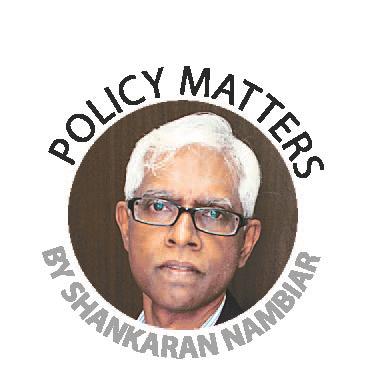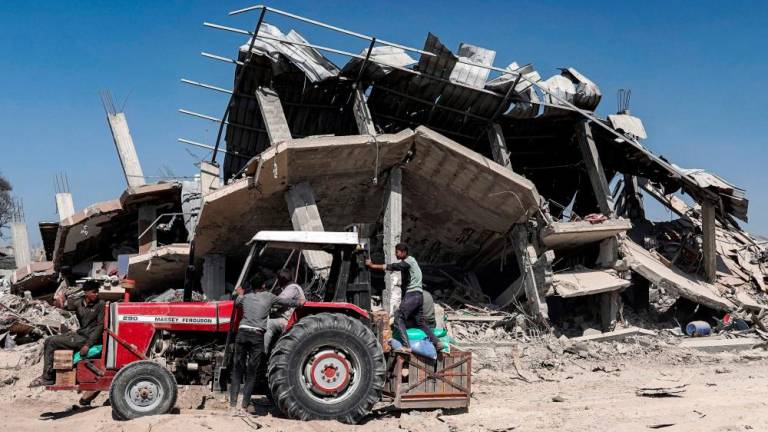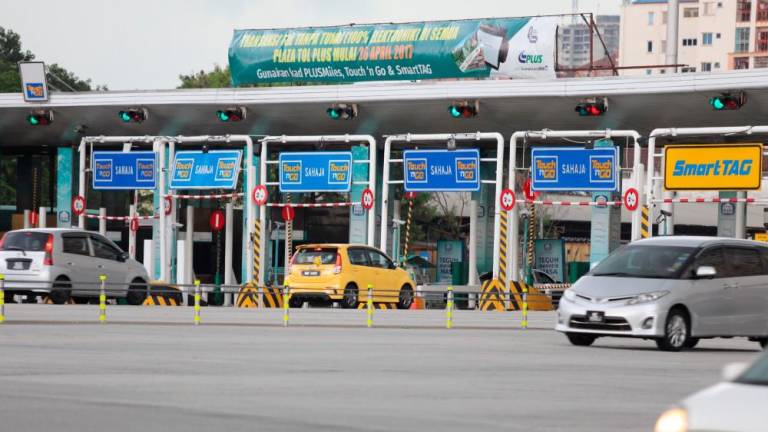THE political landscape in Malaysia is in flux, with all imaginable combinations being possible.
While several senior leaders are eagerly eyeing the prime ministerial post, each is quick to accuse the other of being “obsessed” with such ambitions as if the accuser is compelled to be in the fray for national good.
Prime Minister Tan Sri Muhyiddin Yassin recognises that the country needs political stability. He has announced his intention to hold elections once the pandemic recedes.
While the political scenario is unstable, its effects have easily contaminated the economy.
The economy has had a long list of problems: the middle-income trap, a large migrant labour force and inadequate technological innovation.
Other disturbing issues include the question of affordable healthcare, affordable housing, and high household debt.
These troubling questions are not new, they have been plaguing the country even before the 14th general election and they are issues that have no answers even today.
With the government trying hard to combat Covid-19, the economy experiences sharper uncertainty and a lack of long-run direction.
Recently, Fitch gave Malaysia a downgrade, awarding it a BBB+. The reason for the downgrade was ascribed to the state of political uncertainty and governance.
Finance Minister Tengku Datuk Seri Zafrul Tengku Abdul Aziz responded by stating his disappointment, and that Fitch had not given due recognition to the country’s Covid response efforts.
It is of consequence to note that the downgrade was mainly because of the shifting political ground and governance problems.
Most countries in the region, indeed in the world, have been afflicted by the economic damages of the Covid-19 virus. Most countries have had to resort to expansionary budgets.
Increased government debt is almost certainly the order of the day, the world over.
One would have thought that the rating agencies would have been convinced if Malaysia had presented a sensible roadmap to get the country out of its fiscal deficit.
A firm commitment to return to a state of fiscal balance should have been sufficient in the normal course of events.
What went wrong? Either Malaysia failed to do this in adequate measure, or the political climate was thought to be an obstacle to achieving fiscal stability.
One could argue that the downgrade is a temporary problem.
The Malaysian economy will recover in 2021, provided the pandemic does not spin out of control.
It is expected the economy will post a growth rate of about 6% in 2021. This will reduce the country’s fiscal condition.
Portfolio funds may continue to avoid Malaysia until such time as greater political stability is restored.
The outlook on foreign direct investment (FDI) may be less punishing. There is talk of FDI finding its way to Vietnam and Indonesia. It is not as if all FDI will go to these countries.
Certain classes of investment may be diverted away from Malaysia. This will happen because we have been indifferent to technological upgrading.
We have also been too dependent on cheap foreign labour. It now makes more sense to take the factories to locations where cheap, abundant labour is available.
With the state of political uncertainty, investment approvals may take longer to be processed if there is fear that one government may fall and another takes its place.
When ministers change, priorities will change. And the top civil servants will want to be in line with current policy directions.
Those investors who have sunk their FDI in Malaysia will not pack up and leave, or at least they will not leave solely because of political uncertainties.
It will be true that more investors may take a wait-and-see approach. It will also be true that a more stable political environment would help contribute to growth more than an unstable one.
Some of the investments that have been diverted to neighbouring countries suggests possible investor-aversion to Malaysia.
The Samsung and Apple factories are going to Vietnam, Amazon is building its data centre in Indonesia, and so is Hyundai.
Right now the government seems to be overwhelmed with what it has to do to bring the economy back on track.
In the very short term, the government has to address the loss of livelihood due to the pandemic. At the same time the urgency of rebuilding the economy and restoring it to a state of normalcy cannot be ignored.
Above all, the long-term direction of the economy needs attention, it has been left by the roadside for far too long.
Shankaran Nambiar is head of research at the Malaysian Institute of Economic Research. Comments: letters@thesundaily.com














